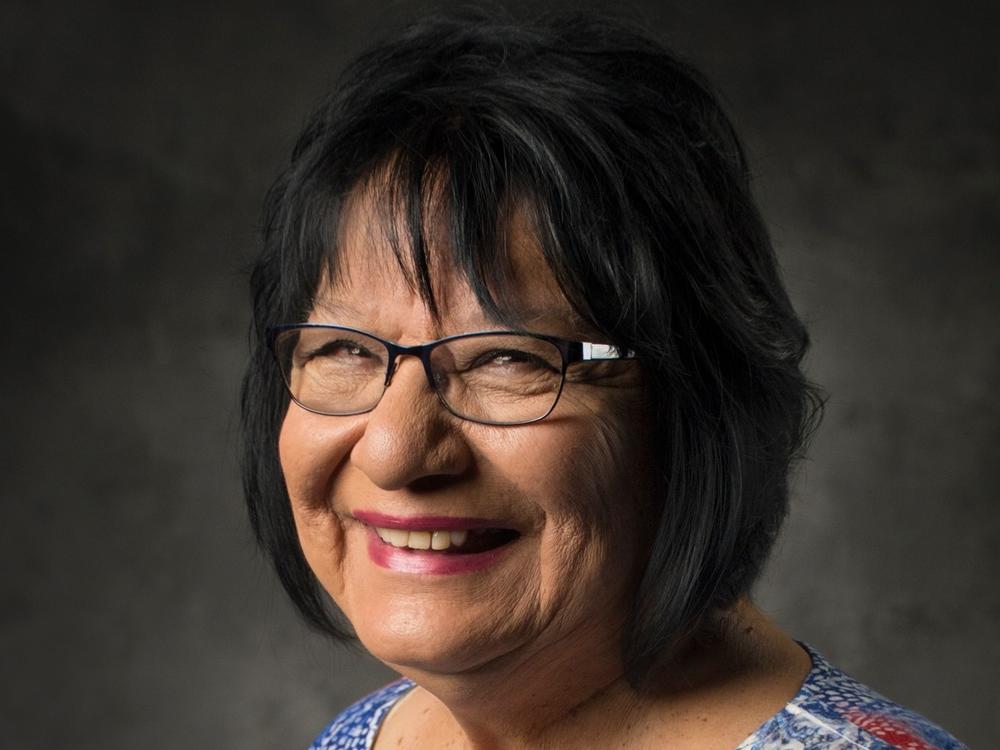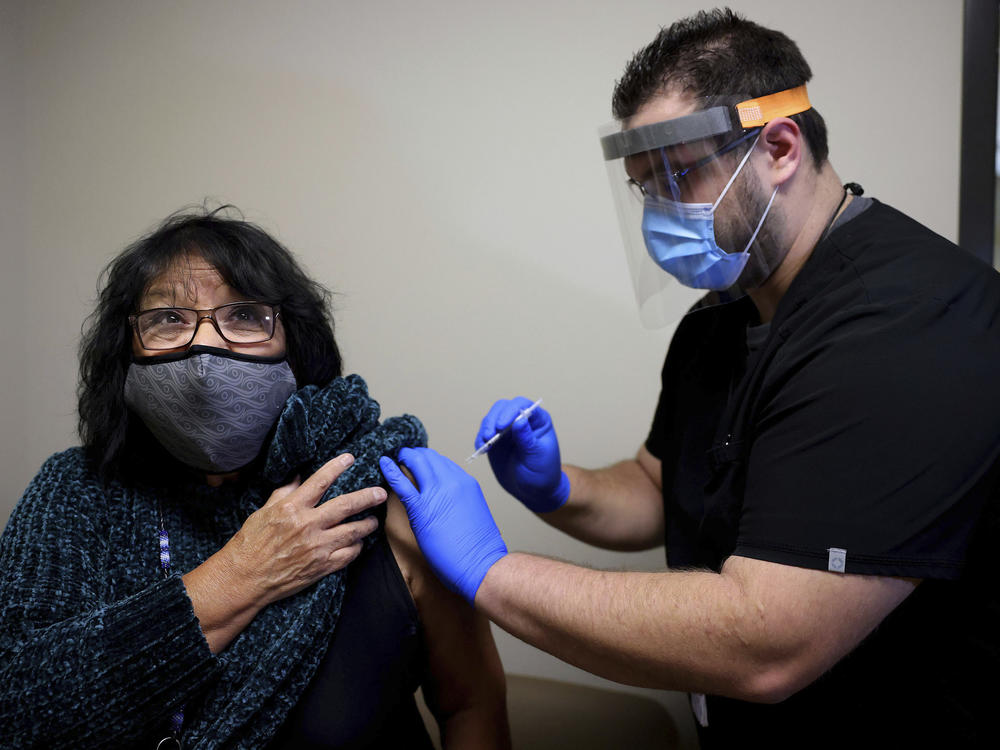Section Branding
Header Content
At First Wary Of Vaccine, Cherokee Speaker Says It Safeguards Language, Culture
Primary Content
The Cherokee Nation is using its first doses of coronavirus vaccine to preserve culture in addition to saving lives.
Cherokees, based in eastern Oklahoma, have directed some of their early doses of vaccine to frontline medical workers and the elderly — and have reserved some doses for Cherokee language speakers. The Cherokee Nation has had more than 11,000 positive cases of COVID-19 and 63 deaths, including at least 20 Cherokee speakers.
Only around 2,000 people are thought to be fluent speakers of the centuries-old language, which is central to the identity of a once-powerful nation. One of those speakers is Meda Nix, 72, who teaches Cherokee to fifth graders.
She says that by preserving her language, she is really preserving "everything. Our culture. Our beliefs. Our ways."
Nix says some aspects of Cherokee simply don't translate. She recalls a pastor in her hometown who told a funny story in Cherokee and declined to translate it because "it's not funny in English."
She is sharing the language of a people with a storied history. Cherokees were a powerful nation in British colonial times and were steadily crushed by wars with encroaching European settlers. In the 1770s, many sided with the British Empire against the infant United States, and lost again.
Throughout this period the Cherokee language was only spoken, not written. But in the early 1800s a Cherokee man named Sequoyah developed a unique writing system. He was one of the few people in recorded history who brought literacy to an entire people who lacked it. By the 1820s Cherokees were producing books and a newspaper. They enjoyed a brief renaissance before the young United States evicted them from their homeland in the American South.
Over the generations the language faded, but Nix grew up in tiny Jay, Okla., in a home where her parents still spoke it. Nix did not learn the language herself until after she had spent decades working for the Indian Health Service. After her retirement, she traveled to the historic Cherokee heartland in North Carolina, then returned to Cherokee areas of Oklahoma.
"I just started seeing these children's faces," she said, "I thought, oh my goodness, this is where I'm supposed to be. So I just started praying about it and that just God just put that in my heart that I needed to learn the language."
She signed up for a class. The instructor took the students outside, giving the names for trees and birds, and her mother's language sounded familiar to her. Today she reads a Bible that's in both English and in Cherokee.
Nix says that when she was first offered a coronavirus vaccine, "I wasn't going to take it." What changed her mind was listening to a Zoom call that involved COVID specialists and tribal elders. "I felt a lot better about it," she said, until the week the vaccines arrived. "I got scared again," she said.
What changed her mind a second time was her faith. "I said I believe in God and I believe in his sovereignty and I believe what he says. He said, I'm going to be with you. I'm not going to forsake you and will take care of you. And I believe that." Last month she got the first shot with no significant side effects, and is awaiting the second.
Copyright 2021 NPR. To see more, visit https://www.npr.org.


